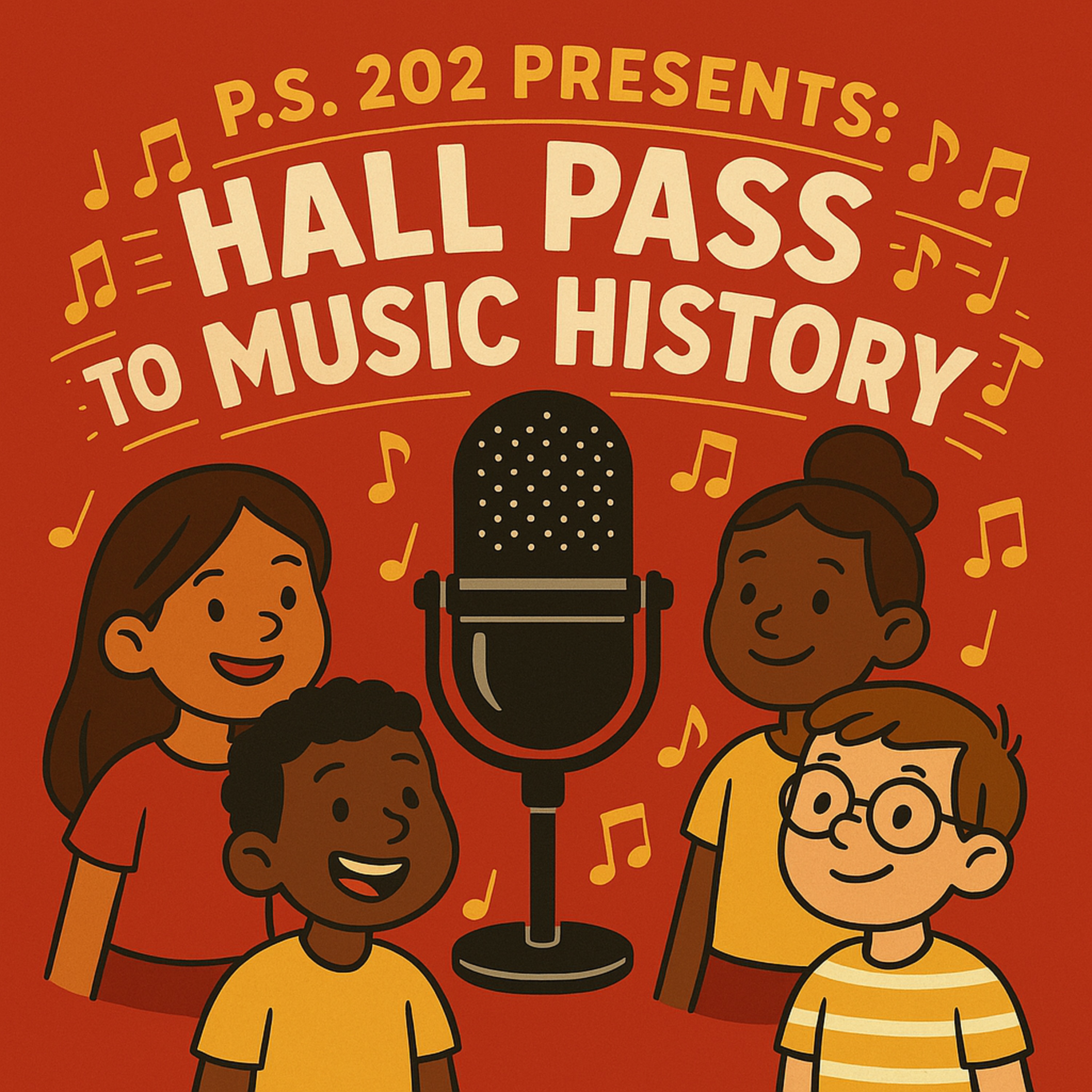Episode Transcript
[00:00:11] Speaker A: Hey, everyone. Welcome back to Hall Pass to Music History, the podcast that tells the story of the music industry's famous artists with stories that have shaped their careers. I'm Annie.
[00:00:20] Speaker B: I'm Magalise.
[00:00:21] Speaker C: And I'm Kaylee. Today we're diving into the story of one of the most influential and respective voices in hip hop, Kendrick Lamar.
[00:00:32] Speaker A: Mr. Mr. Kendrick Lamar Duckworth was born in the 1900s, 1987, to be exact. He was born and raised in Compton, California, and grew up surrounded by music, poetry, and the realities of life in one of LA's most dangerous neighborhoods.
It was just eight years old when he saw Tupac and Dr. Dre filming a video for California Love, and that moment changed him forever.
[00:01:04] Speaker B: Mr. Lamar started rapping under the name K Dot and dropped his first mixtape just as 16 years old, not too much older than us. The neighborhood music label, Top Dog Entertainment, like what they heard, so they signed him to the label.
Mr. Lamar slowly built a loyal fan base through music projects like Overly Decaded, Decaded and Section 80.
[00:01:34] Speaker C: But it was his 2012 album, Good Kid, Mad City that really took off. Fans loved how it sounded like a movie with stories and his teenage years in Compton.
People who review albums called it a masterpiece, and fans related to how personal and honest it was.
[00:02:18] Speaker A: Since then, Mr. Lamar has done something new and exciting with every album. The album called To Pimple Butterfly, mixed jazz, funk, and soul with lyrics about racial identity and social injustice. The album that starts with D, which we can't say because we're kids, won him the Pulitzer Prize for music, the first non classical or jazz artist to ever win.
[00:02:39] Speaker B: And celebrities love him, too. Beyonce and Jay Z love him. And Mr. Lamar even produced the soundtrack for the Marvel movie Black Panther.
Rihanna, who worked with him on the song Loyalty, once called a true visionary.
[00:02:55] Speaker D: Huh? Yeah. The revolution, y' all, y' all, y' all, yeah Yep, the revolution, the revolution.
[00:03:03] Speaker A: Y' all will not be televised, yeah.
[00:03:06] Speaker D: You gotta wake up, open your eyes.
[00:03:08] Speaker A: Make a change in your life and.
[00:03:09] Speaker D: Find a new way of living.
[00:03:11] Speaker A: It's time to start living for the children.
[00:03:13] Speaker C: This year, Mr. Lamar performed at the super bowl halftime, and it was amazing. The big stage was meant for him. Many people called it one of the greatest halftime performances ever because he combines art with activism.
Fans love Mr. Lamar for his lyrics and how he tells stories about real life. He gives a voice to people who often aren't heard, and he's never been afraid to rap about hard things like racism, personal growth, and doubting yourself.
[00:03:47] Speaker A: Mr. Lamar has changed the way we think about hip hop. He's an artist, an activist, and a symbol of artistic evolution.
[00:03:53] Speaker B: And that wraps up today's episode of hall pass to music history. If you like learning about Mr. Lamar, don't forget to follow and leave us a review.
[00:04:00] Speaker C: Thanks for turning into hall pass to music history. We'll catch you next time for a deep dive into the world of music history. Peace.
[00:04:12] Speaker D: Sam.


